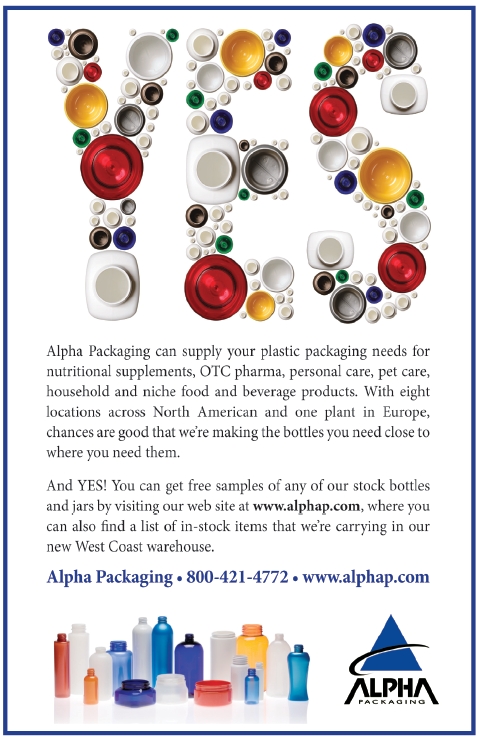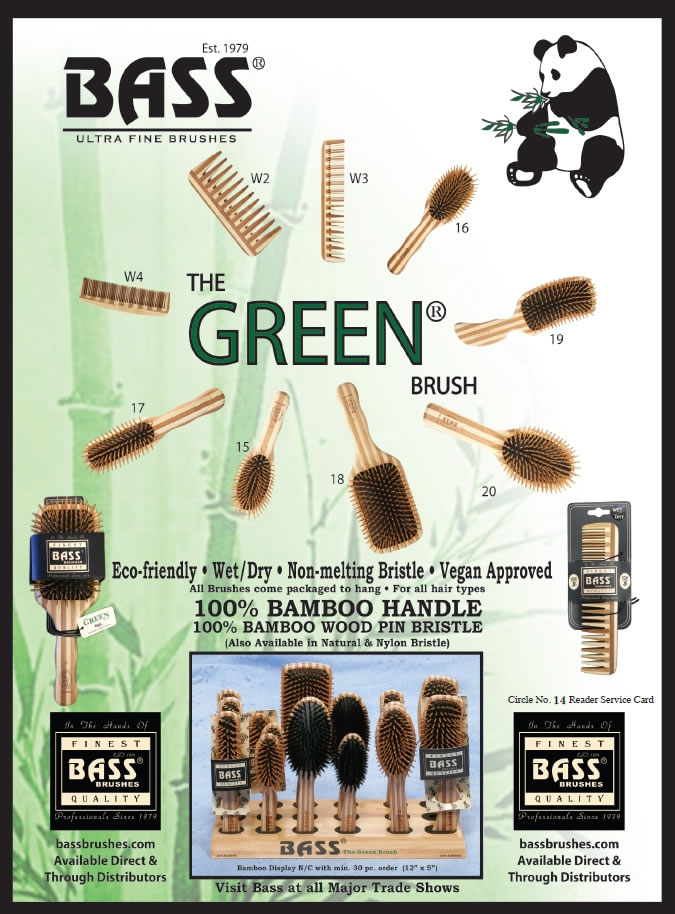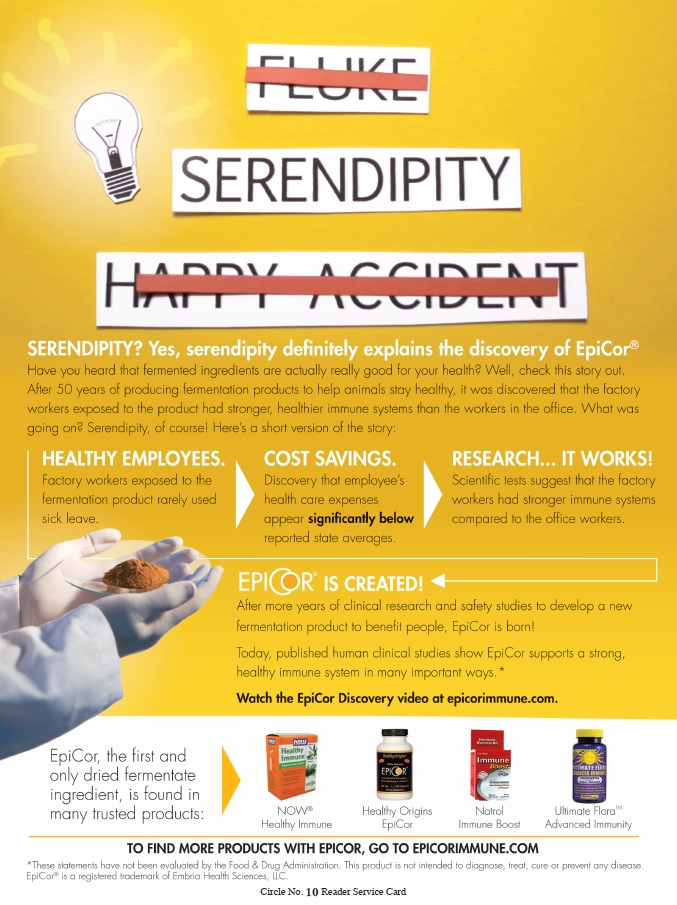Retailers looking to raise profit margins, strengthen their brand and increase customer loyalty need look no further than private labeling. It’s easier said than done, of course. And yet, lots of retailers are doing it successfully. U.S. retail sales of private label foods and beverages reached $102 billion in 2013, outpacing the growth of the overall food and beverage market from the previous year, according to Packaged Facts (1).
But to take part in this boom or to fine-tune their current efforts, retailers must examine their offerings, as well as their whole approach to creating and marketing a private label brand. To help, this article will dissect the private label process from start to finish with those who know it best.
The state of natural products retailing is closely mirrored by how well private label is faring in the natural products channel. So, let’s also take the temperature of private label in natural and see what we can learn.
Private Label Life Cycle
Finding your partner. Every relationship has its beginning. For private label manufacturers and their retail customers, first it’s a matter of finding each other, and then it’s important to start off on the right foot. Jane Drinkwalter, vice president of sales for Vitamer Labs, Irvine, CA, says that leads on potential clients come to her company in all sorts of ways: at conventions, through its Web site, referrals from happy customers and other avenues. Some clients are even steered their way, she says, by competitors that can’t supply what her company can. “And, if we think we are the right fit for you, we pursue you!” Drinkwalter says.
In addition to sources like tradeshows and  referrals, many private label accounts start with a direct interaction between a sales rep and an owner/buyer at their health food store or place of work, according to Phil Vigeant, CEO of Reliance Private Label Supplements, Edison, NJ. Those investigating private label options are also proactive. “We receive inquiries about our products and starting an account often, commonly by either e-mail or by phone call,” Vigeant says.
referrals, many private label accounts start with a direct interaction between a sales rep and an owner/buyer at their health food store or place of work, according to Phil Vigeant, CEO of Reliance Private Label Supplements, Edison, NJ. Those investigating private label options are also proactive. “We receive inquiries about our products and starting an account often, commonly by either e-mail or by phone call,” Vigeant says.
Jennifer Wilson, director of sales at National Enzyme Company, Forsyth, MO, says her company continually locates potential customers to inform them of the capabilities and value they can provide. Some may approach them after seeing an advertisement in an industry publication or through word-of-mouth. Though the means of introduction may vary, Wilson says customers are usually drawn to her company based on its reputation and extensive experience as a quality contract manufacturer of dietary supplements.
There is growing demand for homeopathic remedies across retail channels, and stores are beginning to meet that demand, according to Amy Wright, contract manufacturing coordinator for King Bio, Asheville, NC. As a manufacturer of these products, Wright says her company fields calls from potential clients looking for products in “top categories” such as weight management, cold and flu, allergies and others.
The process. Once a partnership is being considered, Drinkwalter says her company qualifies the store they are in contact with, and the store is encouraged to do the same. “This should be a long and happy relationship, so we need this to start out right. What spells success for each of us? If the prospect is just looking for the best price, we may not be the right fit. So, we look for a store or group of stores that wants a whole program,” she says. Stores poised for success already have the right brand and image in place, and want to further highlight it to their customers. “They want to partner with us to truly create a brand that represents the store and the owners,” says Drinkwalter.
Retail customers can approach private labeling from several angles, Wilson explains. Sometimes, a customer has a specific product or area of concentration in mind, she says, such as digestive health, immunity or energy support. “Or, a customer may know that they want to confidently offer a product to meet their own customers’ demands and are looking for ideas,” says Wilson.
In these latter cases, she says it is very helpful to have a knowledgeable and reputable partner in your corner to strategize with. These new partners must hone in on the right product or products based on many factors, such as current product offerings, target consumers and the proposed marketing plan. “In most circumstances, the customer has a vague idea about what type of product they are looking for and requires some additional guidance in order to launch a product into the marketplace,” Wilson says.
 Frank Richardson, COO of King Bio, says the broad steps in his company’s private label process include the following: planning, formulation, production, product testing, label compliance, packaging and labeling, and fulfillment. To educate potential clients, Richardson says each of these steps is broken down in detail on the company’s Web site.
Frank Richardson, COO of King Bio, says the broad steps in his company’s private label process include the following: planning, formulation, production, product testing, label compliance, packaging and labeling, and fulfillment. To educate potential clients, Richardson says each of these steps is broken down in detail on the company’s Web site.
Though several steps are involved in starting a private label line, Vigeant emphasizes that these tasks may not necessarily be completed one after the other. “Although they are listed as sequential steps, our account setup process happens concurrently,” he says. The carefully designed program they employ is designed to be turnkey. “With an experienced sales team and customer service representatives to help throughout the account set up process, the customer need not worry about being an expert,” Vigeant says. After initial contact is made, he explains that new customers will post a label deposit of $100.00, and after that they are on their way.
Wilson says that early in the process, her company will assign new customers a dedicated and knowledgeable strategic account manager or account executive to serve as their point-of-contact. “This representative will collaborate with the customer to identify the best product to meet their goals based on a meeting of the minds around many factors,” she says.
These factors include the customer’s particular areas of interest, their values and business culture with respect to specific ingredients and product qualities, current product offerings, project timelines, price points, desired market channels, prior experience launching products and marketing plans to support a launch. The account manager, Wilson says, can draw on the company’s vast well of experience in launching private label lines. While maintaining the confidentiality of previous customers, this experience can prove invaluable in aiding new customers as they seek to identify a strategy and make choices that will suit their goals.
Formulation. Eventually, the time comes to select and formulate products. Once the customer’s goals for their products and the capabilities of the manufacturer have been aligned, Wilson says account managers at her company then have a number of proven, established formulas to work with, each of which can be quickly and seamlessly manufactured as the customer’s own product.
Wright notes that a client may want to use one of the preexisting formulas from her company’s own finished product line, or they may want to develop a product from scratch. “In the event that a client wants a completely custom product, we can work with them to develop unique formulas to meet their needs,” Wright says. But if a private label version of one product from the company’s existing line is all that is required, the quote process is fairly straightforward, she says.
Drinkwalter says that companies like hers carry  hundreds of products and SKUs, and that they encourage private label clients to carry the bulk of the basic dietary supplement options in their store brand. This helps leave inventory dollars and shelf space to devote to unique items from national brands, she explains. “You might not need several facings of soft gels if most are made by the same few companies in the industry. The same with CoQ10—have these in your own brand and branch out into unique formulas from national brands,” Drinkwalter says.
hundreds of products and SKUs, and that they encourage private label clients to carry the bulk of the basic dietary supplement options in their store brand. This helps leave inventory dollars and shelf space to devote to unique items from national brands, she explains. “You might not need several facings of soft gels if most are made by the same few companies in the industry. The same with CoQ10—have these in your own brand and branch out into unique formulas from national brands,” Drinkwalter says.
Taking a slightly different slant, Vigeant says that some store owners struggle with the desire to focus solely on generic, commodity-type supplements instead of unique, condition-specific formulas, which he describes as “the lifeblood of the natural products industry.”
Opportunities for success are woven throughout the process of procuring private label products, and Vigeant feels securing a diverse product line is one of those opportunities. With hundreds of SKUs, Vigeant says his company offers a selection that exceeds what most national brands offer. While many understand the value of having high-quality products, he says many retailers underestimate the value of having products under a name, their name, that can’t be found at competing stores. “Having a supplier with a diverse line offers an opportunity to adjust on the fly, allowing one to capture and capitalize on trends in the industry,” he adds.
Vigeant says customers working with his company are presented with its diverse product catalog before choosing what’s best and finalizing their order. The whole process, from initial planning with a customer to the first shipment of product, can take about five to six weeks, he says.
Design. In addition to helping clients with product selection (and offering price discounts based on volume), Drinkwalter says her company can help design the product labels.
Customized art is an important means of getting private label products noticed, Vigeant says. He points out that the sales potential of a product line is strongly correlated with customer loyalty. By combining unique, eye-catching art that gets products noticed with a high-quality, diverse product line, customer loyalty can be established, he says. “The customer will work with our fully staffed art department to co-create their label, an aspect that fully distinguishes them from similar products of the same name,” Vigeant says.
Working with an all-inclusive contract manufacturer like Wilson’s company entails both label design and regulatory and compliance support, she says.
 Before they assist customers with label and packaging design, Wright says her company will walk clients through the steps required for U.S. Food and Drug Administration (FDA) compliance of their products. “They typically contact us, very excited to bring their new product to market. We begin to lead them through the process, and they may get to a place where they say, ‘What’s compliance?’ So there’s an education process and partnership in the whole endeavor,” Richardson says.
Before they assist customers with label and packaging design, Wright says her company will walk clients through the steps required for U.S. Food and Drug Administration (FDA) compliance of their products. “They typically contact us, very excited to bring their new product to market. We begin to lead them through the process, and they may get to a place where they say, ‘What’s compliance?’ So there’s an education process and partnership in the whole endeavor,” Richardson says.
Frank King, N.D., D.C., president of King Bio, details the special considerations his company faces. “Our specialty, homeopathic medicine, is unique in the natural health arena. While herbal and dietary supplements cannot legally state health claims on the label, homeopathic medicine can,” he says, while also pointing out its history of safety and the recognition of the category by FDA. “That doesn’t mean homeopathic medicine has no rules to follow!” he says. After many years as a regularly inspected, current good manufacturing practice (cGMP)-certified facility, King says his company can advise client’s confidently on compliance matters.
NDA. As they guide clients through the private label process, one important element is the signing of a non-disclosure agreement (NDA), Richardson explains, stating, “This assures the client that their formula is safe with us, and also that their identity remains confidential.” All of these final steps are followed by production, packing and shipping, says Wright.
Marketing. Once products are released, the partnership does not end. This is where some of the pre-planning that may have taken place is called into action. “We can present a marketing and merchandising program made just for their store and demographics, whether they’re new to their community or well established and realize the time is right for their own brand of products,” Drinkwalter says.
Certain key questions arise as a marketing plan is developed. Does the store actively train and educate its personnel? Are store customers being educated about ingredient sourcing and labeling, cGMPs, testing and points of product differentiation? Drinkwalter contends that the store’s brand should be the highlight of the store, and that private label partners can help make this a reality. Specifically, she says, her company can help customers highlight key product qualities like organic, non-GMO, vegan/vegetarian and gluten free, as well as desirable product formats like chewables.
In foreseeing how a product will fare, Wright says  it is important for retailers to have a clear understanding of their market and its demands. It is also important for them to understand their own abilities as a retailer, such as how they can communicate with shoppers, she says. While Wright says her company offers hundreds of effective products, getting them onto a store’s shelves is only half the battle. “Generating demand and educating the end user is the other,” she says.
it is important for retailers to have a clear understanding of their market and its demands. It is also important for them to understand their own abilities as a retailer, such as how they can communicate with shoppers, she says. While Wright says her company offers hundreds of effective products, getting them onto a store’s shelves is only half the battle. “Generating demand and educating the end user is the other,” she says.
Continuing the relationship with existing customers is the final act of the private label drama, so to speak. Wilson says that because of the value-added services companies like hers can offer, it’s uncommon that a client will launch one product and be done with it. “We are frequently providing our existing customers with new opportunities as we identify marketable products that fill a void and a need among consumers,” she says.
Keeping the private label process, from concept to product, within the confines of one facility helps make things more collaborative and increases the chances for success, Wilson believes. There is also the element of efficiency when customers stay with the same supplier. Vigeant says that repeat orders typically ship within two to three days of the order being received by his company.
The importance level of choosing the best private label supplier for one’s needs often goes unrealized, Vigeant argues. “The quality of a product, or lack thereof, is something that can capture or drive away an entire demographic. Finding that high-quality supplier should be a high priority,” he says. Trademarked ingredients are one hallmark of quality, and Vigeant says that more experienced shoppers pick up on details like this as they peruse the shelves.
Private Affairs
Though much of the uptick in private label sales was tied by analysts to the recent economic recession, it seems a permanent shift has taken place. Wilson shares recent data from the Private Label Manufacturers Association that shows store brand sales have continued to grow at a greater rate than national brand sales across all retail channels (2). Natural products are at the epicenter of that growth, with grocery giant Kroger projecting earlier this year that its Simple Truth natural and organic foods brand would ring up $1 billion in sales by the end of 2014.
 But it’s not only conventional mass retailers spurring the growth. “Running parallel with the increased demand for private label/store brand products is the growth of independent retailers,” including smaller, fresh-format and natural retailers, Wilson says.
But it’s not only conventional mass retailers spurring the growth. “Running parallel with the increased demand for private label/store brand products is the growth of independent retailers,” including smaller, fresh-format and natural retailers, Wilson says.
The private label business is in fact driven by independent retailers, Vigeant says. Although a saturated market may prove to be a limiting factor, he believes that the emerging health consciousness of consumers may enhance overall demand. David Gerhardt, vice president of sales for King Bio, notes that food-drug-mass market buyers are looking for healthy natural products, including homeopathic options. “This is ultimately good for the natural food marketplace, because more people are now seeking out and being exposed to natural alternatives. The demand is creating increased market share for all who promote a natural, healthy lifestyle,” Gerhardt says.
The climate for private label is also becoming more favorable due to increased standards of product quality, leading to greater consumer trust, explains Vigeant. “Additionally, personalized health is a growing field in natural products. Private labeling allows a health products provider a chance to customize their private brand,” he says.
There are many other ways to underscore the role private label can play, and many tips of the trade of which to take heed. With the growth of online retail and the fact that many national brands are now being sold in multiple channels, Drinkwalter observes that there are fewer brands exclusive to independent retailers. For this reason, she says that private label is clearly an independent’s “most productive” brand. It builds profit margins and repeat business, while serving as an advertisement inside the homes of customers.
Gerhardt expands on this notion, saying, “Retailers see the benefit of having their store logo in the customer’s view all the time as the product is used. It’s a constant reminder of their favorite store, and where to go when they need more.”
|
Popular in Private Private label manufacturers tell us what’s hot and why.
|
“You determine how to merchandise and market these products. You market them in the community to local health care practitioners, community fairs, school tours and business groups and your audience can only come to you to purchase the products,” says Drinkwalter. She suggests selling the science behind your private label products and ingredients, as well as the testing and production processes your suppliers use. This helps customers understand the quality they are getting.
Launching a private label product that a manufacturer already has in stock and ready to go offers many benefits, Wilson says. “It provides a low-risk, low-minimum opportunity to go to market quickly with a new product. Often, when small companies desire to expand or introduce a new product to meet their customers’ demands and business growth goals, they lose momentum by trying to wear too many hats within their organization,” she says. Private label manufacturers like her company simplify the process of serving your customers, Wilson says.
Despite the ease implied in that description, she hastens to add that missteps can be made. These occur when retailers don’t adequately explore certain issues before going to market with a product, such as the required margins, the unique properties of a product and how they compare to competing products, and the plan to educate customers. This is why a close partnership with the manufacturer is crucial.
The value-added services being offered are also important to consider. “We offer marketing services to our customers, which is helpful because many smaller companies don’t have a dedicated marketing team,” Wilson says.
Those shopping for over-the-counter health products are frequently just as concerned with value as with things like product safety and effectiveness, Wright claims. “Utilizing private label manufacturing is an excellent way to appeal to the shopper who is concerned with price point, as well as improved health,” she says.
Providing some final context for the significance of private label in independent natural products retail, Vigeant says, “Private label products offer a chance for a health store to strengthen its store brand while generating high levels of customer loyalty. As the larger chains grow, this loyalty is going to be increasingly important.” WF
See www.wholefoodsmagazine.com/suppliers for additional coverage of the supplier category.
References
1. “Private Label Foods & Beverages in the U.S., 8th Edition,” Packaged Facts (2014), http://www.packagedfacts.com/Private-Label-Foods-8358109, accessed Oct. 29, 2014.
2. “PLMA’s 2014 Private Label Yearbook Now Available Online,” PLMA, http://plma.com/pressupdate/pressupdate.asp, accessed Oct. 31, 2014.
Published in WholeFoods Magazine, December 2014









